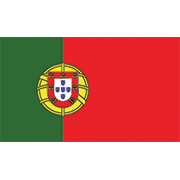Fiscal subject related
From the technical point of the view, it is generated through the RSA algorithm based on the following information:
- Date of issuing
- Date and time of the last alteration of the document
- Receipt number
- Total of the receipt (rounded to 2 decimals)
- The signature generated in the previous document, of the same series
- and on the private key of the computer invoicing program producer
It is important to state, that a digital signature needs to be recorded in the invoicing database (which cannot be encrypted), and is directly associated with the original document’s record. Also, the version of the private key (sequential integers) that was used to generate the signature of the respective document needs to be recorded.
Other news from Portugal
The Portuguese Finance portal launches a new "Tax Information" page in English.
 Portugal
Author: Nikolina Basić
Portugal
Author: Nikolina Basić
Portugal’s Finance Portal has launched a new English-language “Tax Information” section, replacing the former “Portuguese Tax System” page to improve transparency, accessibility, and usability for foreign citizens. The updated section offers clearer navigation and dynamic content covering key tax topics for individuals and businesses, with additional information to be added progressively as user n... Read more



New document was uploaded: S4FiscalBackoffice Patch
S4F backoffice patch is intended for users who have already installed S4F backoffice and are intended to update existing installations to latest version. To do so apply only patches that are marked with version number that is newer than your currently installed instance of backoffice. Please make sure to install all available patches sequentially (without skipping). This package contains instruction, release notes, changelog and software packages required for deployment of this software component. Read more
Subscribe to get access to the latest news, documents, webinars and educations.
Already subscriber? Login


Portuguese Tax Authority Announces January 2026 Brief E-Invoicing Tolerance Period
 Portugal
Author: Tara Nedeljković
Portugal
Author: Tara Nedeljković
Portugal’s Tax Authority has granted a brief tolerance period by extending the deadline for reporting December 2025 invoice data to 9 January 2026, allowing all compliant submissions by that date to be treated as on time and penalty-free. Read more
Subscribe to get access to the latest news, documents, webinars and educations.
Already subscriber? Login


Portugal extends deadline for December 2025 invoice reporting
 Portugal
Author: Nikolina Basić
Portugal
Author: Nikolina Basić
Portugal has granted an exceptional extension allowing December 2025 invoices to be reported without penalties until 9 January 2026, instead of 5 January, for all taxable persons submitting data via certified invoicing software or SAF-T (PT). The Portuguese Secretary of State for Tax Affairs has issued Despacho No. 166/2025-XXV, granting an exceptional extension for the communication of invoices r... Read more



Portugal's deposit and refund system in 2026 and its impact on fiscalization
 Portugal
Author: Nikolina Basić
Portugal
Author: Nikolina Basić
Portugal will launch a nationwide Deposit and Refund System (DRS) on 10 April 2026, introducing a 10-cent refundable deposit on certain non-reusable beverage containers to boost recycling and support the circular economy. Read more
Subscribe to get access to the latest news, documents, webinars and educations.
Already subscriber? Login


Portugal's 2026 Budget brings VAT cuts for agriculture, art, and game meat.
 Portugal
Author: Nikolina Basić
Portugal
Author: Nikolina Basić
Portugal’s 2026 Budget introduces multiple VAT reductions effective 1 January 2026, expanding the application of the reduced 6% rate across agriculture, art, and specific food products. Key measures include cutting VAT to 6% for olive oil production, art gallery sales, and game meat, while extending existing VAT exemptions for agricultural inputs and pet food for animal welfare associations until... Read more



Portugal Extends PDF e-Invoice Validity and Delays QES & SAF-T Requirements to 2027–2028
 Portugal
Author: Nikolina Basić
Portugal
Author: Nikolina Basić
Portugal has extended the validity of PDF e-invoices and postponed the mandatory use of Qualified Electronic Signatures until 2027, giving businesses an extra year to adjust to new digital invoicing rules. The first mandatory annual SAF-T accounting file submission has also been delayed, with the 2026 report now due in 2028 instead of 2027. Last week, the Portuguese Parliament approved a delay to... Read more


